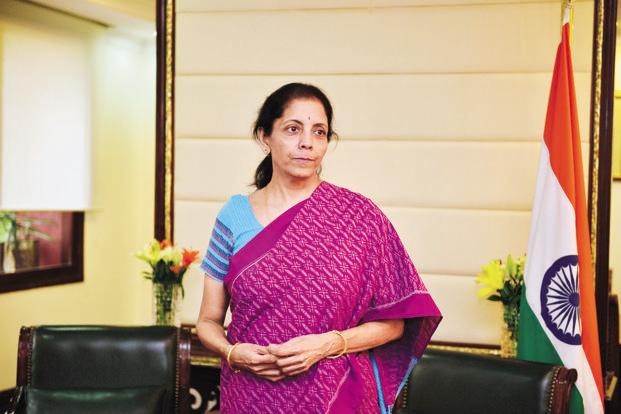NEW DELHI: Commerce and Industry Minister Nirmala Sitharaman today underlined the need for synergising efforts between Centre and states to boost the country’s exports on sustainable basis.
“Since last January, we have managed to contain our trade deficit due to controls on imports, there is an immediate need to synergize our efforts and jointly take appropriate steps to boost India’s exports – which is the only sustainable way in today’s international trade environment,” she said.

The minister was addressing the meeting of the ‘Council for Trade Development and Promotion’.
Its members include trade/commerce ministers of states and UTs, besides 14 secretaries of the central government and industry representatives including Federation of Indian Export Oraganisations (FIEO).
Sitharaman said that the objective of this council is to develop partnerships with the states with the aim of boosting international trade.
She sought suggestions to improve the export competitiveness of domestic products and “on how can we partner in the adoption of such measures to create an environment conducive for exports”.
Seeking support from the members, she said all should use this platform to articulate their perspective on the trade policy and work jointly to address impediments to trade and infrastructure gaps which adversely affect exports.
“One such area which requires immediate intervention is that of facilities for testing, certification, trace-back, packaging and labelling,” she said.
The minister also requested the states to enhance their co-operation with central agencies for setting up common facilities like testing labs, training institutes as well as packaging and storage support to industry.
Further, Sitharaman stated that she had asked states to consider higher allocation of resources for export infrastructure from their increased devolution of funds to which “I expected that at least the ongoing ASIDE projects would be completed by the states. I am still awaiting an affirmative action on this from the states”.
She said the centre is also trying to formulate a scheme which could provide financial support and supplement your efforts to create export infrastructure.
“I hope, we can soon succeed in achieving a consensus for the roll out of this scheme – Trade Infrastructure for Export Scheme (TIES),” she said, adding so far only 17 states have developed their export strategy aligned with the national policy on trade.
Emphasising on the need to focus on services exports, she said there is a need to diversify services exports basket by enabling more sectors and to breach more markets.
“Other areas like medical tourism, nursing and healthcare, education, audio-visual media also afford an excellent potential which can be harnessed. For this, we need to develop the right competencies like language skills for the East and North East Asian markets,” she added.
Sitharaman urged all the states to consider organising bi-monthly meetings with the exporters to sort out infrastructure and tax related issues which would go a long way in improving our trade competitiveness.
“I would like to take this opportunity to exhort the state governments to develop and pursue appropriate export strategies in line with national Foreign Trade Policy and we would be happy to associate in such efforts,” she added.
The minister also asked them to use the export commissioners as focal points for institutionalised interactions with the exporters from the state.
Further she said a hundred to hundred and fifty SPS (sanitary and phyto-sanitary) notifications and a similar number of TBT (technical barriers to trade) notifications are being issued by WTO member countries each month.
“Around 50 to 60 per cent of these measures have the potential to impact our trade. There sector specific needs can broadly be categorised into interventions required for agri and marine products, for forest produce and for industrial products,” she added.
Expanding for the third straight month, exports rose 2.29 per cent to USD 20 billion in November on account of healthy growth in shipments of petroleum products and engineering goods.